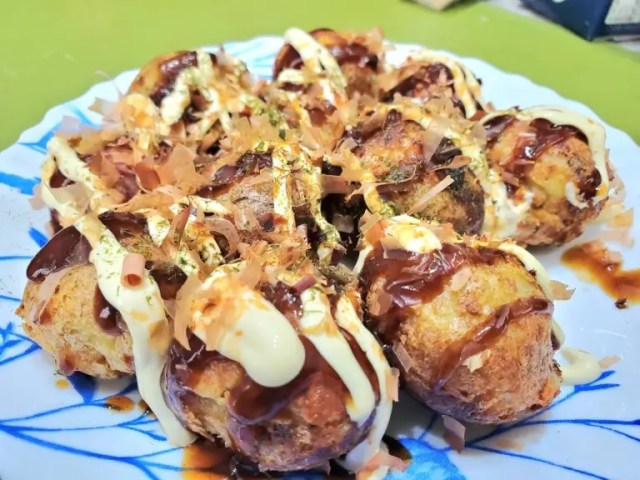
The Kansai region loves octopus dumplings, but will our Kansai-born takoyaki fan love this store’s flour?
Takoyaki, bite-sized spherical octopus dumplings, are a popular food across Japan, but they’re especially beloved in Osaka and the surrounding Kansai region. For the people of Kansai, they’re not just a street food snack, either, as many people have their own compact takoyaki grill so they can cook them at home.
And that’s exactly what our Osaka born-and-bred Japanese-language reporter MG Ogawa was in the mood to do the other day. Instead of getting the flour for his dumplings at the supermarket, though, he went to Toshinobusanchi no Kona, Japan’s first chain of takoyaki flour specialty stores.
From the outside, you might almost think Toshinobusanchi no Kona is a takoyaki stand, what with its window that opens up right onto the street and all. But nope, this is a place with all the ingredients you’ll need to make your own takoyaki, with the exception of the octopus itself.
The chain’s original branch is in the Neyagawa district of Osaka, but MG visited their newer location in the town of Nishinomiya, Hyogo Prefecture. There he picked up a Starter Set that comes with a 250-gram (8.8-ounce) bag of takoyaki flour and a 100-gram bag of tempura flakes for 1,144 yen (US$8.60) (the store sells takoyaki sauce too, but MG already had a bottle at home).
By the way, we’ve been calling it “takoyaki flour,” but there’s more than just wheat in the mixture. Takoyaki flour usually also contains dried katsuo (bonito) and kombu (kelp). Toshinobusanchi no Kona, though, instead uses dried sardine powder.
For this taste test, MG made two batches, and not just because he loves them so much that he doesn’t think it’s possible to have too many takoyaki. The cooking direction included with the starter kit list two different ways to make takoyaki batter, with some slight variations in the ingredient list.
The base ingredients are:
● Takoyaki flour (250 grams [8.8 ounces])
● Water (1 liter [22.8 ounces])
However, for takoyaki fans who want a creamier center and a crisper outer layer, you can also add:
● Canola oil (25 milliliters [0.85 ounces]
● Dashi soy sauce (1 teaspoon)
● 1 egg
Once you’ve got your ingredients sorted, the cooking process is simple. First, mix the batter ingredients together in a bowl, and pour them into the half-sphere indentions in the takoyaki grill. Once it’s heated up, add in a sliced piece of octopus and a sprinkle of tempura flakes for each spot. After the batter browns, stir with a toothpick, icepick, or other needle-like utensil to prevent burning, then pop each dumpling out once its browned all over.
MG’s love of eating takoyaki is greater than his manual dexterity for making them, so there was some crumbling as he stirred. Still, he was able to make a full plate’s worth…
…which he then finished with a dusting of bonito flakes, aonori powdered seaweed, mayonnaise, and takoyaki sauce.
This first batch was made with the additional canola oil, dashi soy sauce, and egg, and it did not disappoint. The texture, soft in the center but firmer on the surface, brought back memories of festival food stall takoyaki, and the extra dash of dashi made them extra flavorful and delicious.
With that joyous sensation still tickling his taste buds, MG started on his second batch, this time using just the Toshinobusanchi no Kona flour and water.
Deciding to get just a little fancy, he used the same toppings as he had for the first batch plus some diced green onion.
The results here were closer to orthodox takoyaki, with a fluffier, more airy breading than the first batch. Not that there’s anything wrong with that, though, because they tasted great in their own way. Sometimes you’re in the mood for a more substantial takoyaki that you slow down and savor, and sometimes you just want to pop them into your mouth one after another.
As a lifelong takoyaki fan, MG gives Toshinobusanchi no Kona’s takoyaki flour full marks. In addition to the branch he went to in Nishinomiya, they also have four locations in Osaka, and if Kansai is a little far for you to go to for a shopping run, they also have an online store here.
Shop information
Toshinobusanchi no Kona / としのぶさん家の粉
Address: Hyogo-ken, Nishinomiya-shi, Kikutanicho 1-38
兵庫県西宮市菊谷町1-38
Open 11 a.m.-6 p.m.
Closed Monday, Tuesday, Thursday
Website
Photos © SoraNews24
● Want to hear about SoraNews24’s latest articles as soon as they’re published? Follow us on Facebook and Twitter!
[ Read in Japanese ]

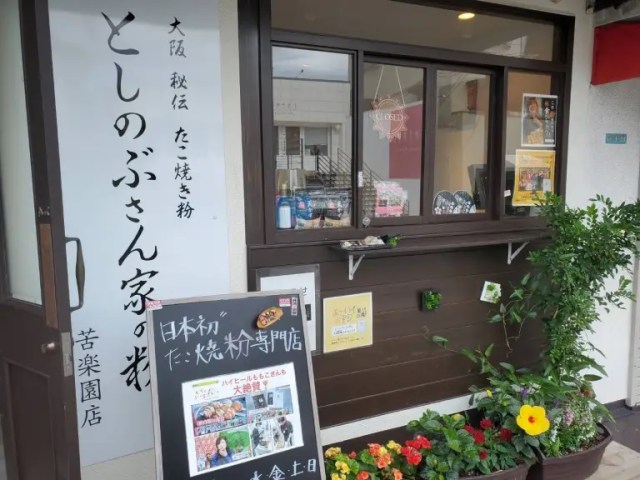
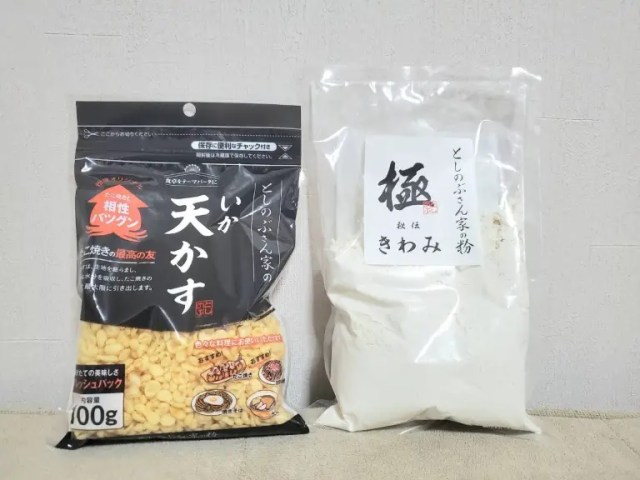
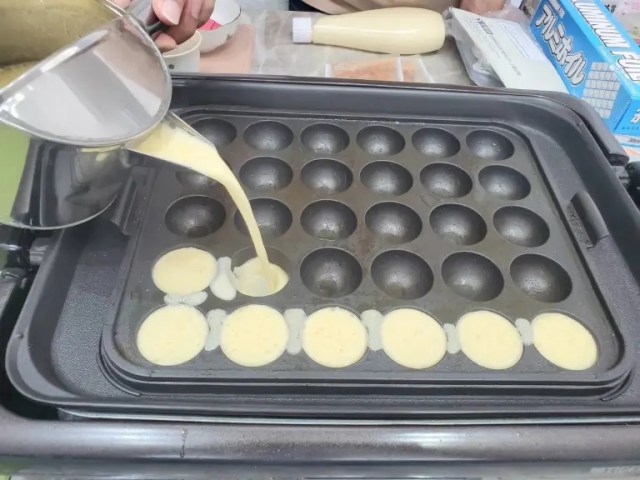
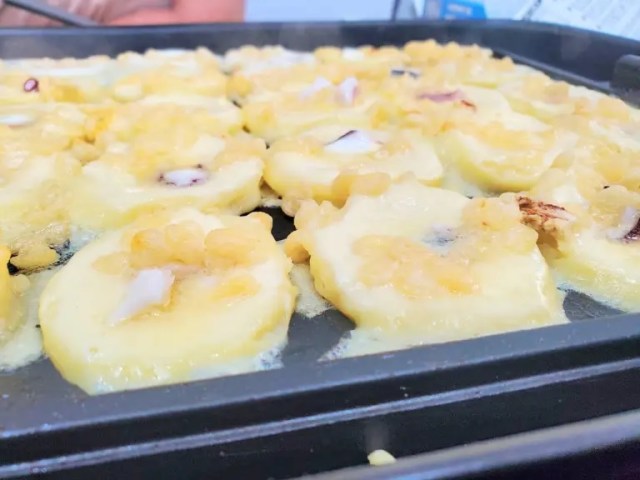
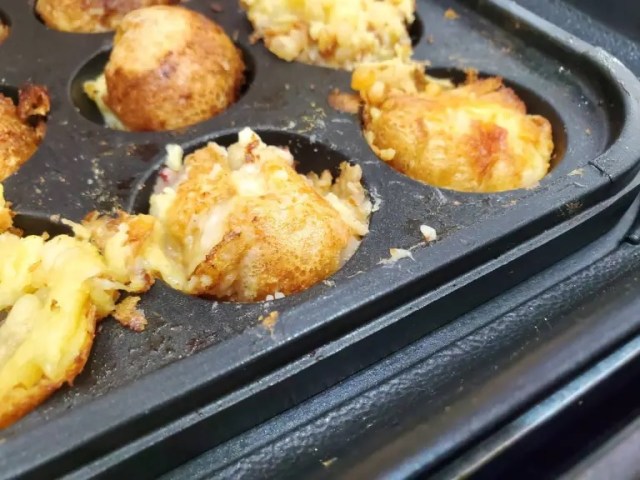
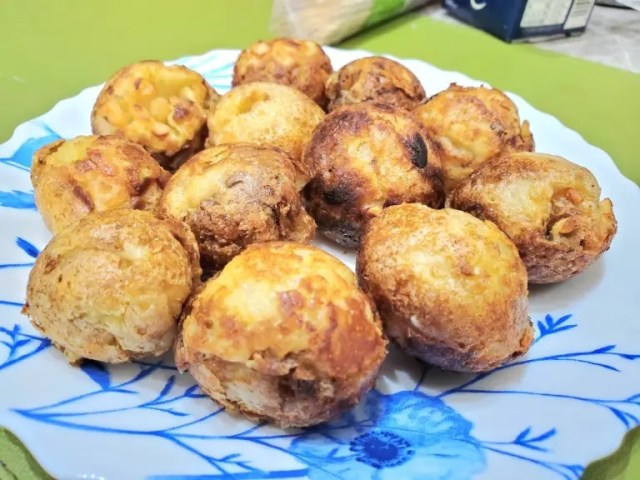
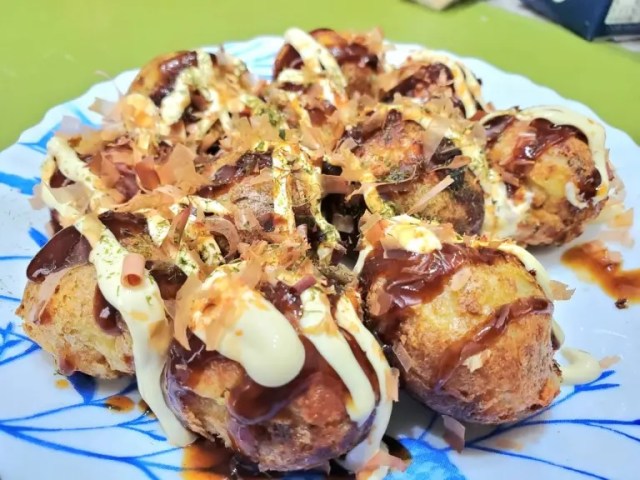
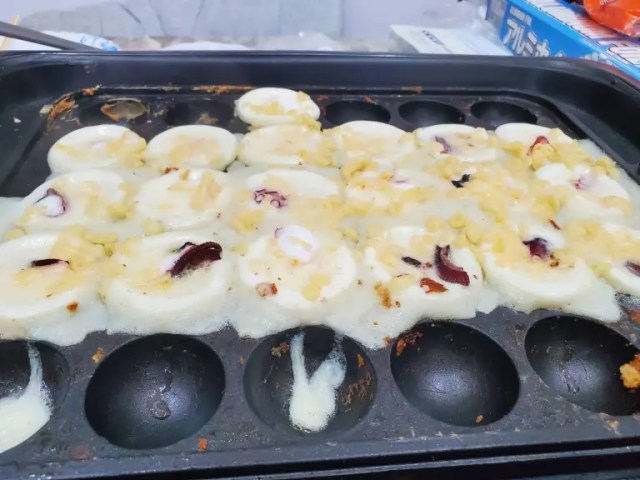
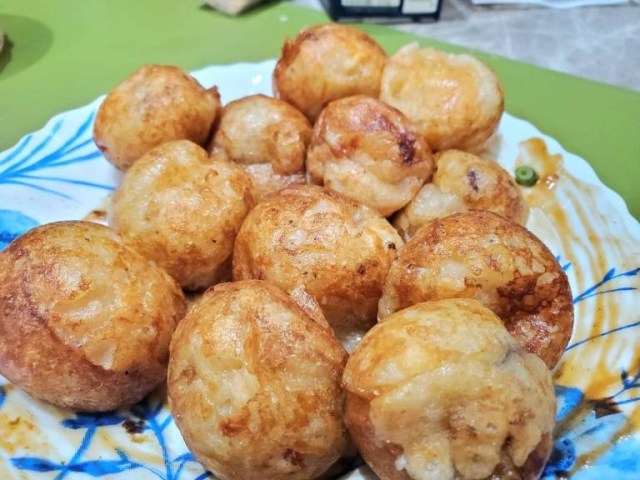
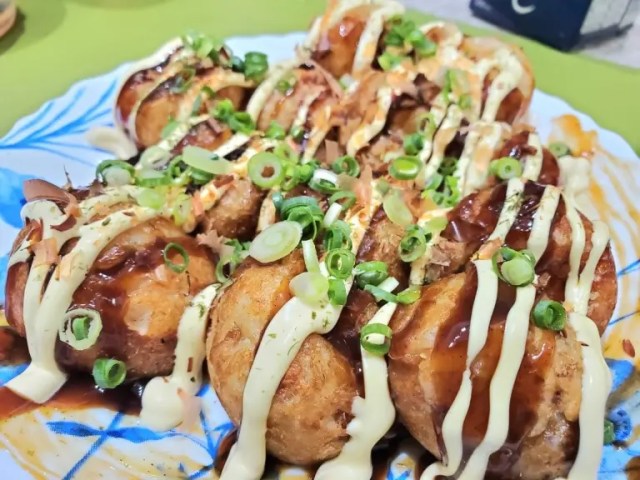
 How to turn Cup Noodle instant ramen into delicious Osaka-style dumplings【SoraKitchen】
How to turn Cup Noodle instant ramen into delicious Osaka-style dumplings【SoraKitchen】 Octopus balls become octopus planets with amazing tweak to takoyaki recipe
Octopus balls become octopus planets with amazing tweak to takoyaki recipe Kansai-exclusive takoyaki Cup Noodle lives up to half of the expectations its name produces
Kansai-exclusive takoyaki Cup Noodle lives up to half of the expectations its name produces Takoyaki store in Osaka becomes a hot topic on Reddit, but is it any good?
Takoyaki store in Osaka becomes a hot topic on Reddit, but is it any good? One of Japan’s most beautiful hot spring towns announces new limits on number of day trippers
One of Japan’s most beautiful hot spring towns announces new limits on number of day trippers Ghibli’s Princess Mononoke teams up with Foxfire for outdoor apparel collaboration【Photos】
Ghibli’s Princess Mononoke teams up with Foxfire for outdoor apparel collaboration【Photos】 Flying dango: Unique tourist site where Japanese sweets are flown to you over a gorge
Flying dango: Unique tourist site where Japanese sweets are flown to you over a gorge Mario Kart Happy Meal toys arrive at McDonald’s Japan, and SoraNews24 has the whole set!【Photos】
Mario Kart Happy Meal toys arrive at McDonald’s Japan, and SoraNews24 has the whole set!【Photos】 Giant Clodsire Pokémon plushie comes with up to 32 Woopers in super size, super cute set【Pics】
Giant Clodsire Pokémon plushie comes with up to 32 Woopers in super size, super cute set【Pics】 Japanese ramen restaurant serves noodles with a heartwarming side of history
Japanese ramen restaurant serves noodles with a heartwarming side of history The new Ranma 1/2 anime is here! So is it worth watching?【SoraReview】
The new Ranma 1/2 anime is here! So is it worth watching?【SoraReview】 Meet anime’s newest isekai hero: a sentient vending machine in a fantasy world【Video】
Meet anime’s newest isekai hero: a sentient vending machine in a fantasy world【Video】 After cancelling Halloween, Tokyo’s Shibuya neighborhood cancels New Year’s Eve too
After cancelling Halloween, Tokyo’s Shibuya neighborhood cancels New Year’s Eve too The top 5 ice creams you should try at Family Mart convenience stores in Japan this summer
The top 5 ice creams you should try at Family Mart convenience stores in Japan this summer Sanrio and magical girl anime PreCure join forces for new merch line【Photos】
Sanrio and magical girl anime PreCure join forces for new merch line【Photos】 Japanese job-quitting service contacted by other job-quitting service because employee wants to quit
Japanese job-quitting service contacted by other job-quitting service because employee wants to quit New Ghibli papercraft kit gives you a little Princess Mononoke forest on your desk【Photos】
New Ghibli papercraft kit gives you a little Princess Mononoke forest on your desk【Photos】 Tokyo restaurant isn’t kidding about the name of its overflowing rare wagyu-ju【Photos】
Tokyo restaurant isn’t kidding about the name of its overflowing rare wagyu-ju【Photos】 Beautiful Japanese garden green tea crepes waiting in Tokyo’s historical Asakusa neighborhood
Beautiful Japanese garden green tea crepes waiting in Tokyo’s historical Asakusa neighborhood Ghibli Park debuts first winter illumination display with Howl’s Moving Castle theme
Ghibli Park debuts first winter illumination display with Howl’s Moving Castle theme Tokyo park’s sea of clouds, nighttime illumination, and cosplay days make now perfect time to visit
Tokyo park’s sea of clouds, nighttime illumination, and cosplay days make now perfect time to visit Nintendo’s controller capsule toys are so cool, even the machine you buy them from is awesome【Pics】
Nintendo’s controller capsule toys are so cool, even the machine you buy them from is awesome【Pics】 Tokyo Disneyland loses top-attendance crown for Japanese theme parks for second year in a row
Tokyo Disneyland loses top-attendance crown for Japanese theme parks for second year in a row Pringles releases a limited-edition sweet flavour in Japan
Pringles releases a limited-edition sweet flavour in Japan What’s the deal with akebi, the perfectly purple, alien-like fruit that’s in season now in Japan?
What’s the deal with akebi, the perfectly purple, alien-like fruit that’s in season now in Japan? McDonald’s new Happy Meals offer up cute and practical Sanrio lifestyle goods
McDonald’s new Happy Meals offer up cute and practical Sanrio lifestyle goods Foreign tourists on Shinkansen bullet train break suitcase etiquette, angering local passengers
Foreign tourists on Shinkansen bullet train break suitcase etiquette, angering local passengers [Deleted] Article written for April Fool’s Day 2018
[Deleted] Article written for April Fool’s Day 2018 Japanese government to make first change to romanization spelling rules since the 1950s
Japanese government to make first change to romanization spelling rules since the 1950s Foreigner’s request for help in Tokyo makes us sad for the state of society
Foreigner’s request for help in Tokyo makes us sad for the state of society Ghibli founders Toshio Suzuki and Hayao Miyazaki contribute to Japanese whisky Totoro label design
Ghibli founders Toshio Suzuki and Hayao Miyazaki contribute to Japanese whisky Totoro label design Japanese convenience store Family Mart announces abolishment of eat-in spaces
Japanese convenience store Family Mart announces abolishment of eat-in spaces Princesses, fruits, and blacksmiths: Study reveals the 30 most unusual family names in Japan
Princesses, fruits, and blacksmiths: Study reveals the 30 most unusual family names in Japan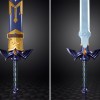 Life-size vibrating Legend of Zelda Master Sword for sale from Nintendo【Photos】
Life-size vibrating Legend of Zelda Master Sword for sale from Nintendo【Photos】 Studio Ghibli releases free-download board game — Here’s how to play it without reading Japanese
Studio Ghibli releases free-download board game — Here’s how to play it without reading Japanese Terrifying Cthulhu-yaki created by lazy Japanese home chef
Terrifying Cthulhu-yaki created by lazy Japanese home chef Takoyaki…inarizushi? New fusion food boggles the mind in Japan
Takoyaki…inarizushi? New fusion food boggles the mind in Japan Eel-topped takoyaki is delicious in any season, but here’s why now is the best time to try it
Eel-topped takoyaki is delicious in any season, but here’s why now is the best time to try it Survey finds that Osaka people don’t eat takoyaki octopus balls as much as you’d think
Survey finds that Osaka people don’t eat takoyaki octopus balls as much as you’d think Everything you need to know about takoyaki (octopus balls) 【Video】
Everything you need to know about takoyaki (octopus balls) 【Video】 Takoyaki sushi rolls at popular Japanese chain take California rolls to a whole new level
Takoyaki sushi rolls at popular Japanese chain take California rolls to a whole new level We pig out at Aizuya, the Michelin Guide-featured takoyaki shop
We pig out at Aizuya, the Michelin Guide-featured takoyaki shop Takoyaki stand in Nagoya sold side orders of cocaine, police say
Takoyaki stand in Nagoya sold side orders of cocaine, police say World’s first Takoyaki Guitar created in Japan, features a gas grill and octopus balls
World’s first Takoyaki Guitar created in Japan, features a gas grill and octopus balls The Fuwatoro Yamaimo Teppan just might be 7-Eleven Japan’s dish of the year【Taste test】
The Fuwatoro Yamaimo Teppan just might be 7-Eleven Japan’s dish of the year【Taste test】 Takoyaki Party and Italian fully-loaded rice balls coming to NewDays for a limited time
Takoyaki Party and Italian fully-loaded rice balls coming to NewDays for a limited time Want to be popular with the ladies/men? Be good at making takoyaki, study says
Want to be popular with the ladies/men? Be good at making takoyaki, study says Takoyaki makers surprisingly good at grilling meat for yakiniku too
Takoyaki makers surprisingly good at grilling meat for yakiniku too Great balls of octopus and rice! It’s the Takoyaki Onigiri
Great balls of octopus and rice! It’s the Takoyaki Onigiri New Japanese takoyaki candy tastes so bad, even the makers doubted it would sell
New Japanese takoyaki candy tastes so bad, even the makers doubted it would sell Takoyaki boat tray comes to life in Japan, sails down river near Tokyo
Takoyaki boat tray comes to life in Japan, sails down river near Tokyo
Leave a Reply